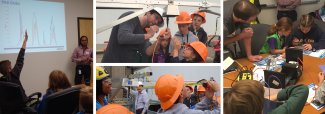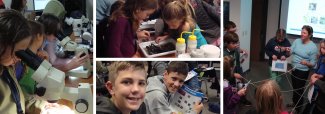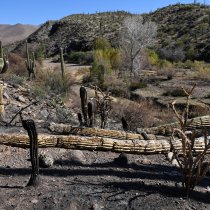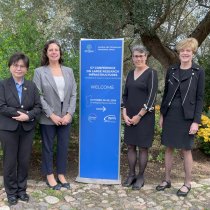Kids explore science and technology at NEON for a day
May 4, 2017
After our Take Our Daughters and Sons to Work Day program at the NEON project headquarters in Boulder, Colorado, one enthused 8-year old girl proudly showed her father the pond sample she collected herself, emphasizing the aquatic insects that indicate a healthy ecosystem, then turned to her right to compare engineering design drawings with a new-found friend.
Thirty-four children, aged 5-12, participated in the 2017 Take Our Daughters and Sons to Work Day program. These children were not only able to see up close where their moms and dads work, but also participate in hands-on activities led by scientists and engineers. This year’s activities were geared around NEON’s mission to enable understanding and forecasting of the impacts of climate change, land use change and invasive species on continental-scale ecology and encouraging children to explore careers in Science, Technology, Engineering, and Math (STEM).
Richard Leonard, VP, Business Strategy for the Battelle Ecology Business Line, kicked off the day by welcoming the children and emphasizing that learning about how our environment changes over time is critical to future generations. After the introduction, the children split up into two sessions, switching groups halfway through the day. One session was focused on NEON’s instrument systems including building a sensor with engineers, scientists and computer science staff while the other group tackled big picture ecology questions through the exercise of doing organismal sampling with aquatic and terrestrial scientists.
In the instrument systems session, the agenda emphasized the collaboration needed between engineers, scientists and computer science staff to build the NEON observatory. During the session, the children were tasked with designing and building a PAR (photosynthetically active radiation) sensor that measures sunlight. They worked with scientists to determine the data outputs and specifications for their sensor, engineers to create drawings of their sensor and install it on the tower, and computer scientists to load and visualize their data.

Kids learning about automated instruments at NEON
In the organismal sampling session, the children learned how and why NEON collects data about plants, animals and microbes across the United States. Interactive activities included creating food webs with yarn, gearing up for the field, aquatic sampling in the NEON headquarters pond, beetle sampling, insect identification activities and lab analysis of their samples. The goal was to teach the kids scientific thinking and data analysis skills that they could carry with them beyond just that day.

Take our Daughters and Sons to Work Day
“The engineers and scientists were very impressed with the level and complexity of the kids’ questions and contributions,” says Laura Aeling, an overseer of the initiative. “For example, when they were looking at solar radiation data, middle school kids knew exactly what they were looking at and what each [graph] curve meant what. At a high level, they were able to match engineering requirements with designing a sensor - and they’re in middle school! In the organismal sampling session, kids of all ages were fascinated by the aquatic ecosystem [the headquarters pond] and its inhabitants.”
By exposing these children to data and technology at an early age through activities at NEON, we hope to inspire them to consider a future STEM career while gaining a better understanding and appreciation of what their parents do day-to-day.
The Take Our Daughters and Sons to Work Day initiative is one of several programs that Battelle offers to help increase data literacy and promote careers in STEM. Through NEON’s research internship program, undergraduate students work closely with NEON mentors on real-world scientific, engineering and computing projects, and in the process begin the transition from student to professional colleague. During the 11-week program, interns have opportunities to explore career options through a variety of avenues including weekly career seminars, communications workshops and informational interviews with NEON staff. NEON recently announced the 2017 cohort. Applications for the 2018 program will open in December 2017.
NEON also offers week-long Data Institutes that provide critical skills and foundational knowledge for graduate students and early career scientists working with heterogeneous spatio-temporal data to address ecological questions. This year’s Institute will be held at NEON headquarters in June 2017 and will focus on remote sensing of vegetation using open source tools and reproducible science workflows – the primary programming language will be Python. Spots are still open to attend this year's course.
Whether it’s a kindergarten student or graduate level researcher, NEON is excited to offer resources and opportunities for increasing understanding of ecological processes and change at large spatial and temporal scales. For more information about our resources and opportunities including professional development; seasonal fieldwork jobs for early career scientists; undergraduate research internships; teaching modules and materials for professors to use in the undergraduate classrooms; and online tutorials to gain the data skills, please visit the NEON's Learning Opportunities.


